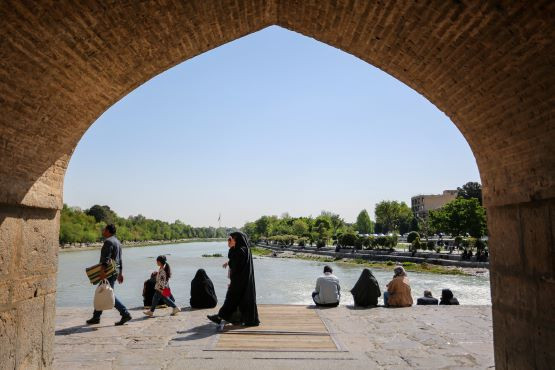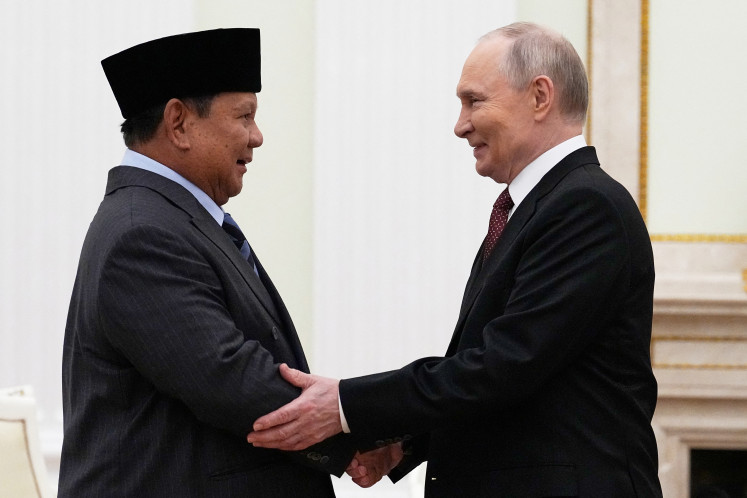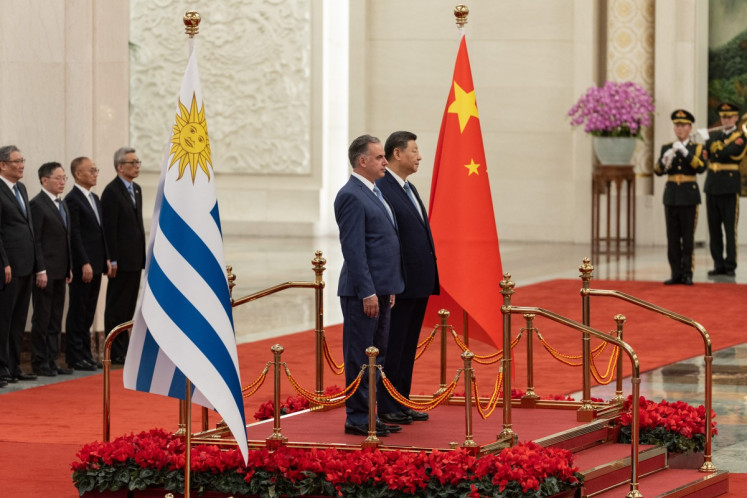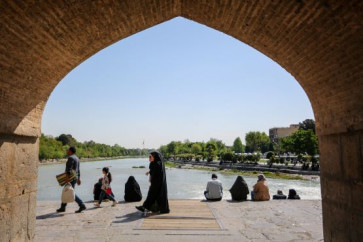Popular Reads
Top Results
Can't find what you're looking for?
View all search resultsPopular Reads
Top Results
Can't find what you're looking for?
View all search resultsAssessing Indonesian fiscal risks amid the Iran-Israel conflict
The government and BI need to prepare a carefully considered contingency plan to prevent a rupiah free fall in the event that escalation in the Iran-Israel conflict disrupts the global oil market and trade routes.
Change text size
Gift Premium Articles
to Anyone
I
n the geopolitical landscape, certain scenarios resonate with the palpable tension of a classic Mexican standoff, in which each party holds a gun to the other's head, neither able to move without risking mutual destruction.
The prospect of an armed conflict between Israel and Iran is not just distant political rhetoric but a scenario with immediate economic implications, particularly due to the strategic alliances backing each country: Russia and China with Iran, and the United States and NATO with Israel. However, in every standoff is always the wild card: a reckless individual shallow enough to pull the trigger.
Voilà: Israel has truly become that wild card as Benjamin Netanyahu seeks to save face, employing a tit-for-tat strategy by attacking Isfahan in central Iran. Although the casualties were minimal, the immediate repercussions should be felt across global oil markets.
The most sensitive sector is likely to experience a sharp increase in oil prices, influenced not by a direct shortage of supply but by strategic disruptions in significant trade routes.
The Strait of Hormuz, a narrow chokepoint south of Iran, epitomizes this vulnerability. According to the US Energy Information Administration, around 21 million barrels of oil pass through this strait daily, accounting for approximately 21 percent of global oil consumption.
For Indonesia, the implications of an escalation in the Iran-Israel conflict could be severe. A spike in global oil prices, potentially surpassing US$100 per barrel, would directly translate to higher domestic fuel prices, exacerbating inflation and placing additional strain on the economy.
In response, the Indonesian government might find itself in a precarious position of either allowing fuel prices to rise, which would increase the cost of living for its people, or significantly boosting its subsidy expenditure to stabilize prices, a move fraught with fiscal risks.



















